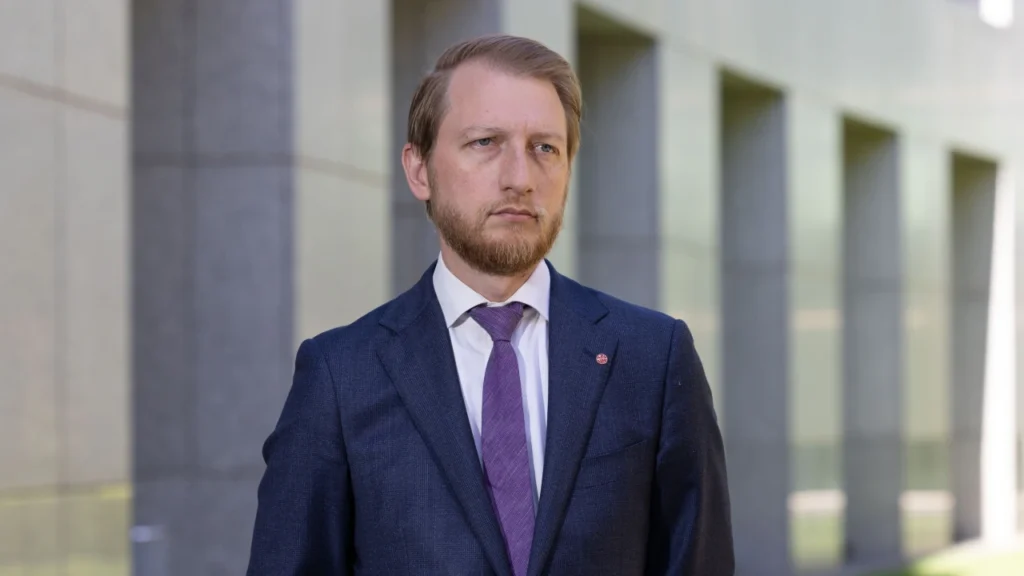Anthony Albanese First Leader Tariff Claim: The Timeline Unraveled
The Anthony Albanese first leader tariff claim has stirred controversy, especially after it was revealed that the Australian Prime Minister may not have been the very first global leader to respond to Donald Trump’s surprise tariff announcement. This claim, once positioned as a badge of diplomatic urgency, is now facing serious challenges from both opposition parties and international media reports.
Here’s a breakdown of the unfolding story — and why it’s generating so much heat.
A Claim Under Fire: What Albanese Said
Prime Minister Anthony Albanese made a bold assertion: that he was the first leader in the world to respond to President Trump’s ‘Liberation Day’ tariff measures announced on April 3. He emphasized this during a press conference held in Far North Queensland, stating that he was “on his feet within minutes” of the announcement and responded with a comprehensive plan.
His statement:
“The first leader in the world to respond. And we responded with a comprehensive plan.”
But was that actually the case?
Sweden’s Prime Minister Responded First — By 12 Minutes
The timeline tells a different story. While Albanese did begin his press conference at 8:21 AM AEST, Sweden’s Prime Minister Ulf Kristersson had already issued a public statement at 8:09 AM AEST—a full 12 minutes earlier.
Despite the late hour in Stockholm, Kristersson delivered a poignant message via social media, reflecting on historical ties between Europe and the U.S., and condemning the tariffs. His swift action was a surprise, considering the time zone differences.
This critical inconsistency undermines the credibility of Albanese’s assertion that he led the international charge.
The Swedish Response Was Measured and Strategic
Kristersson’s statement wasn’t just symbolic — it was deeply strategic. He highlighted shared cultural and economic links, emphasizing that free trade is foundational to Western prosperity. By invoking historical alliances and modern interdependence, the Swedish PM framed the tariffs as a regression, not a reform.
His tone, calm yet firm, set the stage for what many have called a model diplomatic response.
Albanese’s Five-Point Plan Was Substantive — But Came Second
While Anthony Albanese’s first leader tariff claim may not hold up, it’s important to note that his response did go beyond rhetoric. Alongside Foreign Minister Penny Wong, he introduced a five-point action plan including:
- A $50 million support package for affected industries
- A $1 billion economic resilience fund
- Creation of a critical minerals reserve
- Measures to expand trade in non-impacted sectors
- A review committee to oversee long-term impacts
Clearly, this wasn’t just optics. But timing matters, especially when leaders tout their responsiveness as a core strength.
The Opposition Pounces on the Inconsistency

The Coalition wasted no time. Senator James Paterson, acting as campaign spokesman, accused Albanese of making a “bizarre boast” and questioned whether the Prime Minister was misleading the public or simply uninformed.
Paterson’s direct quote:
“Anthony Albanese should come clean: did he deliberately lie to cover up his weakness standing up for Australia?”
Such remarks amplify ongoing concerns about Albanese’s meticulousness and his responsiveness in global diplomacy.
Context Matters: Time Zones, Optics, and Public Memory
From a strategic viewpoint, Albanese may have assumed that other leaders wouldn’t respond during their off-hours. With Trump’s announcement coming late in the night for most global capitals, his claim might have been based on probable silence from others — a miscalculation that’s now proving costly.
Yet perception and precision are everything in international diplomacy. Even small inaccuracies have the power to erode credibility and chip away at public confidence.
A Pattern? The Stage Fall Denial Adds to the Criticism
Interestingly, this incident comes on the heels of another puzzling denial by the Prime Minister. Footage surfaced of him stumbling off a stage, which he later denied despite clear video evidence.
Opposition Leader Peter Dutton bluntly labeled it a “lie,” hinting at a pattern of avoiding accountability — a criticism that now links back to the tariff claim controversy.
Albanese’s Justification: “You Have to Be an Adult”
Albanese justified his choice to avoid an immediate call with Trump by citing the U.S. administration’s tendency for shifting stances, suggesting that any early outreach might have been premature or ineffective. He stressed the importance of measured diplomacy over reactionary moves — possibly a veiled jab at Dutton’s approach.
While the sentiment has merit, critics argue that this stance contradicts his initial claim of rapid leadership.
Conclusion: Truth, Timing, and the Power of Perception
Anthony Albanese’s claim of being the first global leader to act on tariffs serves as a classic reminder that political narratives, no matter how earnest, must hold up against the twin tests of public perception and historical fact. Though the Prime Minister outlined a clear and implementable strategy, the suggestion that he led the world in this initiative doesn’t align with the actual chronology of international responses.
In a media environment that prizes accountability and transparency, even small inaccuracies can ripple into larger credibility issues.
As this story continues to unfold, one thing is clear: leadership is not just about being first — it’s about being right.


